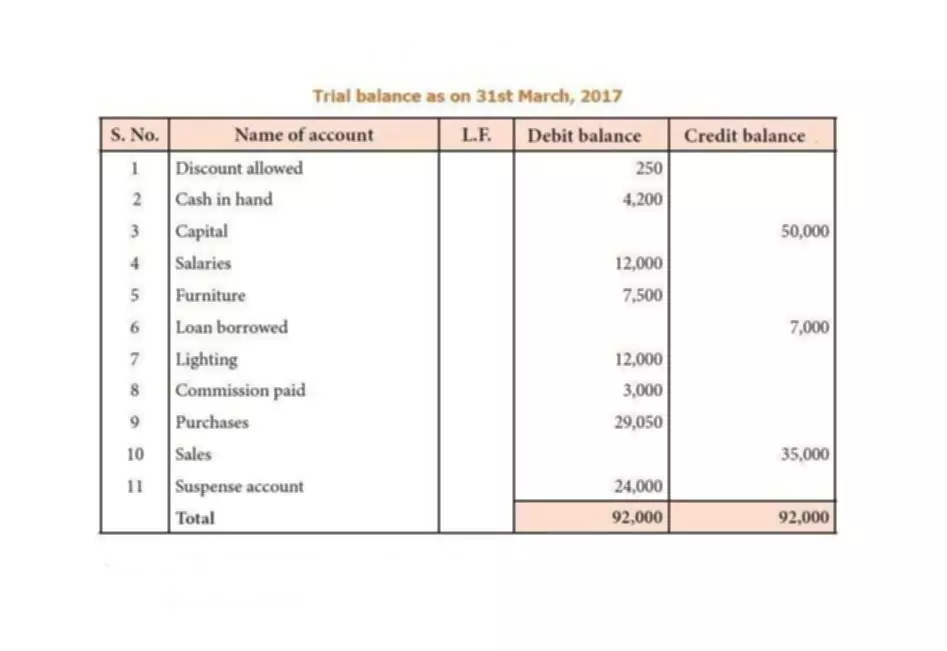- April 17, 2023
- Comments: 0
- Posted by: Sue Smith
Content

Accountants typically have at least a bachelor’s degree in accounting, and many go on to become certified public accountants (CPAs) or certified management accountants (CMAs). Bookkeepers might also have degrees in accounting, but most have either technical certifications or on-the-job experience. Your bookkeeper might also prepare other auxiliary reports for your business, like accounts payable and accounts receivable aging reports.

The bookkeeper records supplier invoices in the accounting system, obtains approvals for them, and pays suppliers in accordance with the payment terms stated on each invoice. Bookkeeping involves the recordation of basic business transactions in a recordkeeping system. In essence, the term implies that an individual is tasked with the most common ongoing accounting transactions; more complex transactions are reserved for those with more advanced accounting training. Generally speaking, however, attention to detail is a key component in accountancy, since accountants must be able to diagnose and correct subtle errors or discrepancies in a company’s accounts.
Why Is Accounting Important for Investors?
Intuit accepts no responsibility for the accuracy, legality, or content on these sites. Let us walk you through everything you need to know about the basics of bookkeeping. Laura is a freelance writer specializing in ecommerce, lifestyle, and SMB content. As a small business owner, she is passionate about supporting other entrepreneurs, and sharing information that will help them thrive. Accountants, on the other hand, generally have at least a four-year degree.
What are the 2 kinds of bookkeeping?
The single-entry and double-entry bookkeeping systems are the two methods commonly used.
By having access to this data, businesses of all sizes and ages can make strategic plans and develop realistic objectives. Without bookkeeping, accountants would be unable to successfully provide business owners with the insight they need to make informed financial decisions. Bookkeeping is just one facet of doing business and keeping accurate financial records.
What Are the Different Types of Accounting?
They can call upon the local certified public accountant for answers to the more difficult questions that may arise. Financial accounts have two different sets of rules they can choose to follow. The first, the accrual basis method of accounting, has been discussed above.

The history of accounting has been around almost as long as money itself. Accounting history dates back to ancient civilizations in Mesopotamia, Egypt, and Babylon. For example, during the Roman Empire, the government had detailed records of its finances.
Business
If your business uses QuickBooks, Xero or some other platform to track financials, that is your general ledger. Bookkeepers help you track and see the data, whereas accountants help you grasp that data and understand how it affects your business. Your small business already has an accountant, so does it really need a bookkeeper as well? While the terms bookkeeping and accounting are often used interchangeably, the definition of a bookkeeper is different to that of an accountant. The bookkeeper may prepare preliminary financial statements, but may rely upon an accountant to produce the final statements.
What are the three types of bookkeeping?
The 3 types of accounting include cost, managerial, and financial accounting. Although 3 methods of accounting are both vital to the healthy functioning of a business, they have different meanings and accomplish different goals.
Beyond record-keeping and financial analysis, advisory services can help startups develop or take established businesses to the next level. While all roles share a common goal, it’s important to understand what the differences are and what they each offer to growing small businesses. Some business owners might use the terms bookkeeping and accounting interchangeably, but there is a difference. Bookkeeping is more transactional — concerned with recording and organizing financial transactions. Accounting builds on the information provided by bookkeeping, using it to analyze costs, assess a business’s financial health and make financial forecasts.
Depending on the city, you can expect to earn between $40,000 and $60,000 your first year as a Big Four accountant. While the companies do not publish salaries on their websites, the benefits can be a large draw. For example, KPMG offers employees up to 25 days of paid vacation time, telecommuting opportunities, and a robust health insurance package. There are https://www.bookstime.com/what-is-bookkeeping various career paths for accountants (and some for bookkeepers), from working as a forensic accountant to becoming a financial auditor or an enrolled agent. When your small business is just starting out, you might do your own bookkeeping. You can find good resources online that can help you get started and provide tips to ensure you are doing it correctly.
- Without bookkeepers, companies would not be aware of their current financial position, as well as the transactions that occur within the company.
- The year-end reports prepared by the accountant have to adhere to the standards established by the Financial Accounting Standards Board (FASB).
- Liabilities are what the company owes like what they owe to their suppliers, bank and business loans, mortgages, and any other debt on the books.
- As a financial auditor, you may work as an external or internal auditor.
- When an effective bookkeeping system is in place, businesses have the knowledge and information that allows them to make the best financial decisions.
As a result, all professional accounting designations are the culmination of years of study and rigorous examinations combined with a minimum number of years of practical accounting experience. Bookkeeping is a transactional and administrative role that handles the day-to-day tasks of recording financial transactions, including purchases, receipts, sales and payments. Accounting is more subjective, providing business owners with financial insights based on information gleaned from their bookkeeping data. Double-entry bookkeeping is the practice of recording transactions in at least two accounts, as a debit or credit. When following this method of bookkeeping, the amounts of debits recorded must match the amounts of credits recorded. This more advanced process is ideal for enterprises with accrued expenses.
